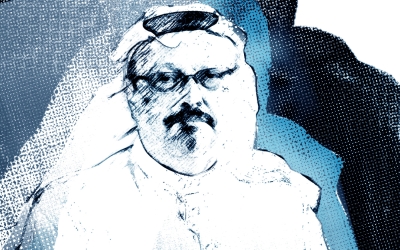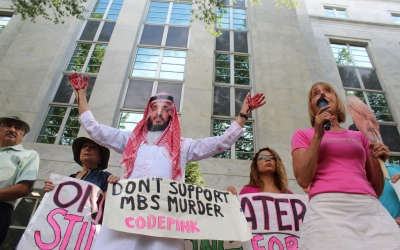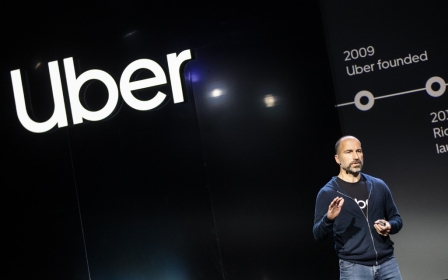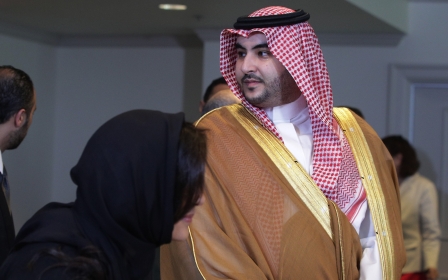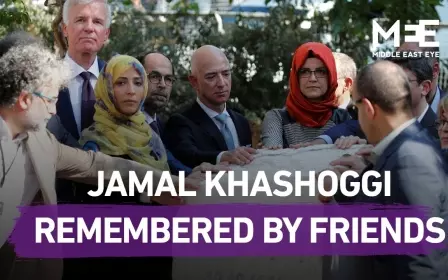US blacklists former Saudi diplomat over Khashoggi murder
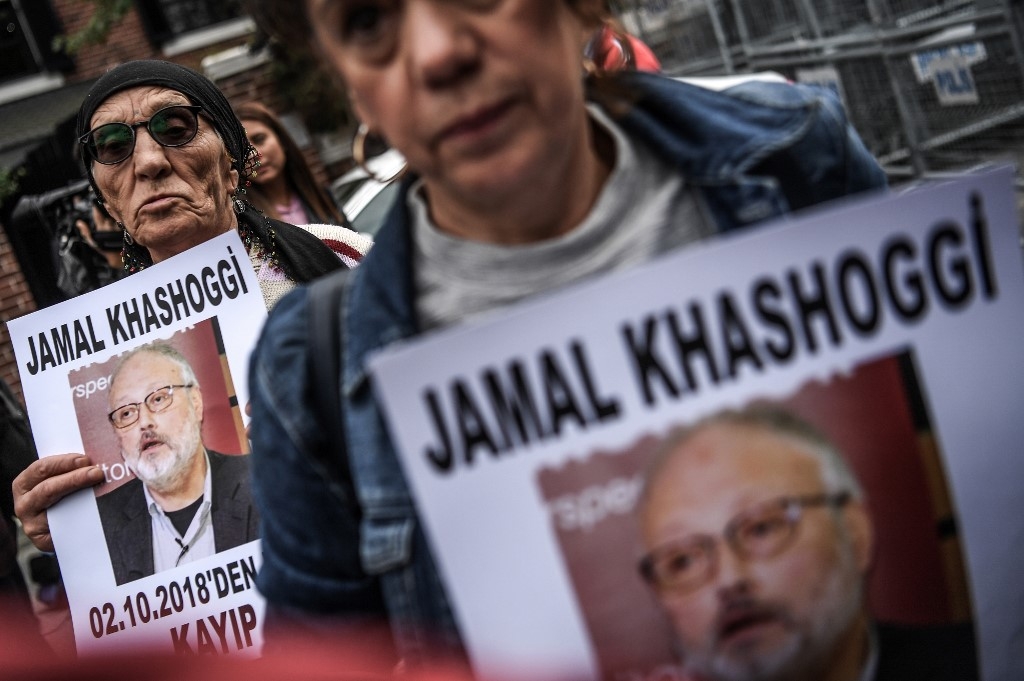
The United States has blacklisted a top Saudi diplomat for his alleged involvement in the murder of Saudi journalist Jamal Khashoggi last year.
The US State Department said on Tuesday that it had banned Mohammed al-Otaibi from entering the country. Otaibi was Saudi consul general in Istanbul when Khashoggi was murdered inside the consulate in October 2018.
The State Department said it designated Otaibi "for his involvement in gross violations of human rights".
"The murder of Jamal Khashoggi was a heinous, unacceptable crime," the department said in a statement. "Our action today is another important step in responding to Khashoggi's killing."
The decision comes amid persistent calls from US lawmakers and human rights groups for the Trump administration to pressure its Saudi allies to investigate Khashoggi's murder - and hold those responsible to account.
New MEE newsletter: Jerusalem Dispatch
Sign up to get the latest insights and analysis on Israel-Palestine, alongside Turkey Unpacked and other MEE newsletters
So far, Donald Trump has stood by Saudi Arabia and the country's powerful crown prince, Mohammed bin Salman, despite the CIA's conclusion that he ordered the assassination.
Riyadh has denied that bin Salman, also known as MBS, was involved.
Khashoggi, a Washington Post columnist who lived in the US State of Virginia, was killed and dismembered by Saudi government agents at the kingdom's consulate in Istanbul on 2 October 2018.
Khashoggi had gone to the consulate to retrieve personal paperwork that would allow him to marry his Turkish fiancee.
Saudi authorities at the consulate, believed to have been led by Otaibi, at first insisted that Khashoggi, who also wrote for Middle East Eye, had left the building alive.
Four days after the murder, Otaibi invited Reuters journalists into the consulate to show them that Khashoggi was not there.
"If those who say he was kidnapped are focusing on his being in the mission, these are just rumours that have no proof," Otaibi told the news agency on 6 October 2018.
"And we unfortunately regret some of the statements that have been made by Turkish officials who insist that [Khashoggi is] in the consulate ... without it being built on facts."
Saudi Arabia later made an about-face, and said Khashoggi was killed in an "unauthorised" operation.
It vowed to launch an investigation into the murder and since then, 11 people in Saudi Arabia have been arrested in connection to the killing.
Investigation
In its statement on Tuesday, the US State Department urged the Saudi government "to conduct a full, fair, and transparent trial of those responsible for Mr. Khashoggi's death, and to hold accountable all those involved in his death".
As part of the blacklisting, Otaibi's immediate family will be barred from entering the US, as well. Otaibi's US assets were frozen last year in relation to the killing.
"We will continue to seek all relevant facts, consult Congress, and work with other nations to hold accountable those involved in the killing," the department said.
The Trump administration has resisted attempts by members of Congress to get it to reveal the contents of an investigation into the circumstances surrounding Khashoggi's killing, however.
It has also stood by MBS despite multiple reports that concluded the Saudi crown prince was ultimately responsible for the murder.
Following a six-month investigation, UN expert Agnes Callamard concluded in a report released earlier this year that the assassination was a state act for which Saudi Arabia was responsible.
In December 2018, the US Senate unanimously adopted a resolution to hold MBS accountable for Khashoggi's murder.
The motion stated that the Senate "believes Crown Prince Mohammed bin Salman is responsible for the murder of Jamal Khashoggi".
But the resolution was symbolic, and various bipartisan attempts by Congress to hold Saudi Arabia accountable have so far failed.
Middle East Eye delivers independent and unrivalled coverage and analysis of the Middle East, North Africa and beyond. To learn more about republishing this content and the associated fees, please fill out this form. More about MEE can be found here.


